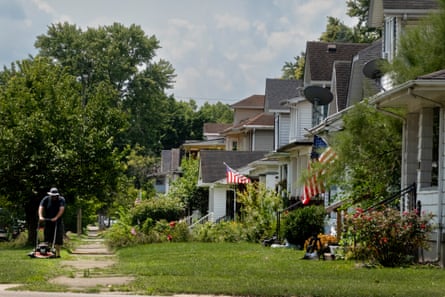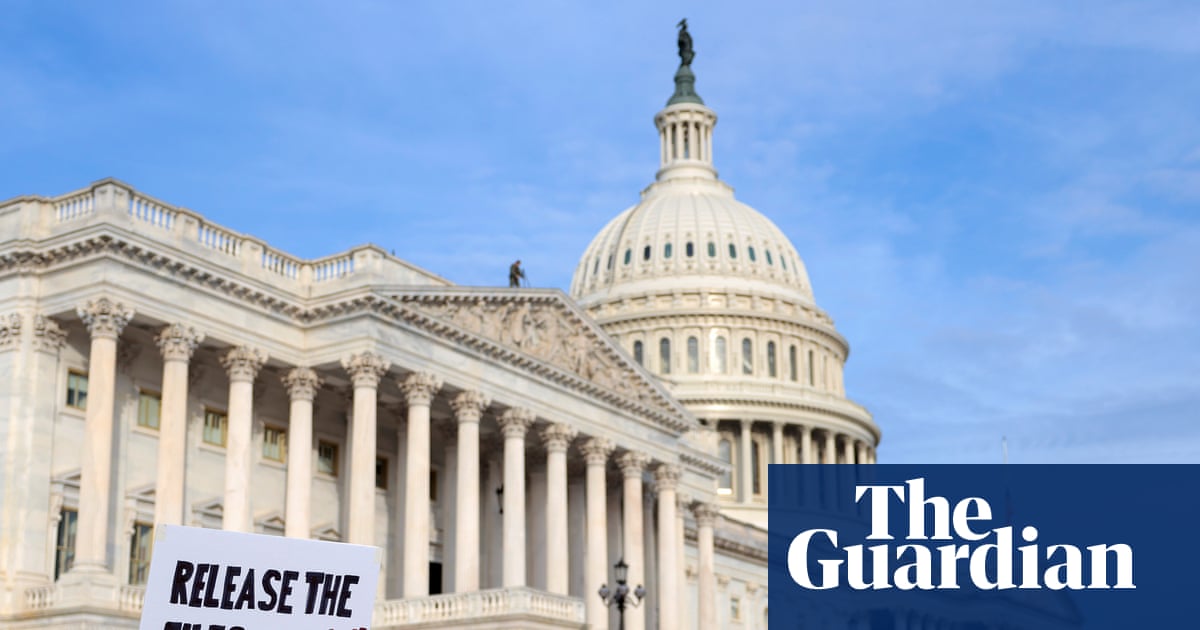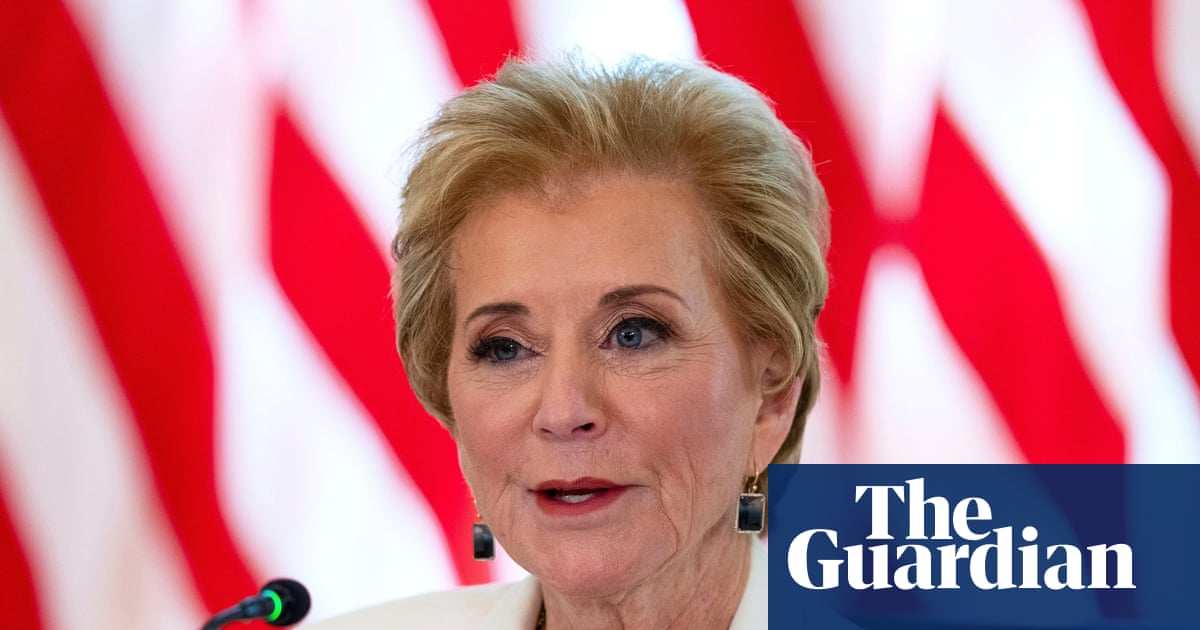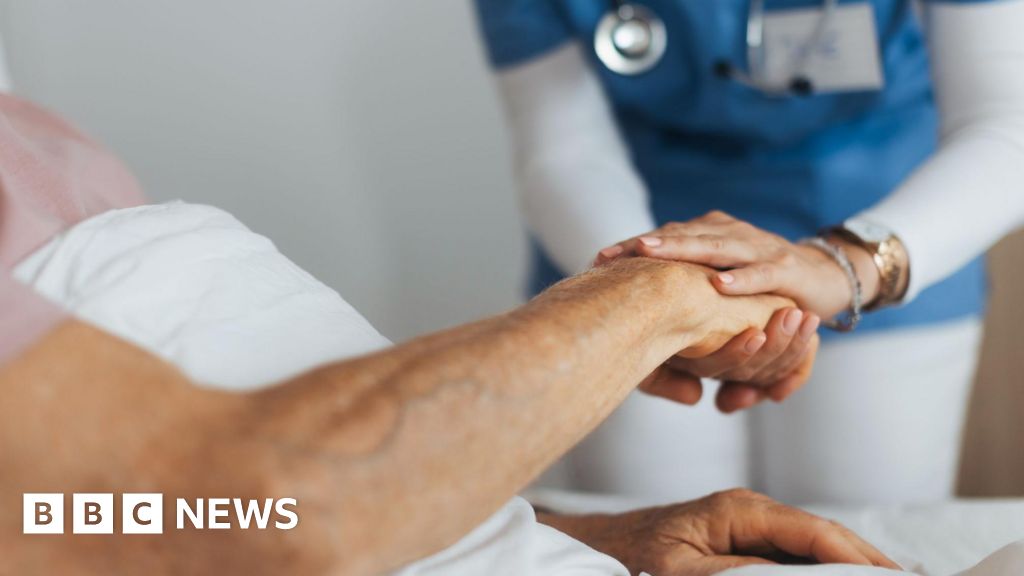When the Middletown high school marching band performed at the presidential inauguration in Washington DC in January, they did so having called on parents, relatives and friends to empty their pockets to help pay for the trip.
Despite his apparent nous and wealth, built from a former career in venture capital, Middletown native JD Vance declined to help the students and their supporters get to the capital on the day that honored and marked him as one of the most powerful people in the country.
And in May, when the community learned that Donald Trump’s Department of Education was taking back a $5.6m grant that Middletown’s schools had been awarded, school representatives and local politicians, many of them Republicans, wrote to Vance, begging him to reinstate the funding.
“To a public school district, $5.6m, that’s not just some easy figure to come up with to complete the project,” the Middletown schools superintendent, Deborah Houser, told WVXU.
But all they heard back from Number One Observatory Circle, the vice-president’s Washington DC residence, were crickets.
It’s for these and other reasons that progressives Scotty Robertson and Larri Silas decided to run for two seats on Middletown’s non-partisan city council in next month’s election.

With national midterm elections still a year out, the Middletown city council election could represent one of the first political temperature checks following nine months of upheaval fueled by White House policies that have targeted working-class Americans like many in Middletown.
Although the Middletown city council is officially non-partisan, its current makeup leans 3-1 in favor of Republican members, with the fifth member, the mayor, being regarded as a centrist. The two council seats up for election are now occupied by Republicans.
If both – or either – Robertson and Silas win, the swing would send shock waves all the way to Washington.
“Middletown is a city that has communities with some very vulnerable populations. The [Trump administration] policies are designed to help billionaires, and there are not a lot of his billionaire friends that exist in Middletown,” says Robertson, a West Virginia native and pastor who moved to Middletown eight years ago.
“Peter Thiel doesn’t live in Middletown.” Tech billionaire Thiel is thought to have played a major role in financing Vance’s political rise.
Despite Vance being Middletown’s most famous son and Ohio broadly safe ground for Republican politicians for at least a decade, tellingly, nearly four in 10 of voters in the city of 50,000 people chose not to back Vance and Trump in last year’s presidential election.
As a young Black woman in a city where 27% of the population is non-white, Silas’s candidacy could prompt residents not normally politically motivated to get out and vote in light of the wider political climate in the country.
“I think a lot of people in Middletown want change, and that people see youth as change,” says the 22-year-old nursing home staffer and third-generation Middletown resident.
“A lot of people say they want to see the youth get involved [in politics]. But when you do, you’re often criticized for not having experience.”
Silas was jolted into politics after longtime Democrat Sherrod Brown lost his Ohio Senate seat to Bernie Moreno, a Republican endorsed by Trump, last November.
“I thought: ‘What can I do? I can’t change national politics, but I can get involved someway,’ she says.”
National polls show Vance’s unfavorability rising since becoming vice-president. Those describing themselves as independents, a crucial voting bloc, have recorded their unfavorable view of Vance increasing from 48% around inauguration day in late January to a record 57% in early October. A similar increase has been recorded among African Americans and Hispanic voters, who make up a considerable number of Middletown residents.
Vance has been criticized locally for not stepping in to save a Biden-era grant worth hundreds of millions to a local steel plant that would have created hundreds of clean energy jobs. In December, his mother admonished Middletown’s city council for not doing enough to recognize his achievements.
Silas and Robertson claim Vance’s policies and lack of support are damaging Middletown’s prospects.
“I’m confused [by Vance]. He says he wants to govern for the working person, for the average person, yet the policies that he supports are policies that hurt poor, working people disproportionately,” says Robertson.
Last month, Vance posted on X, saying: “Democrats are about to shutdown the government because they demand that we fund healthcare for illegal aliens,” a claim that has no basis in reality.
“Middletown has families that are disproportionately in the socioeconomic class that these policies are hurting. That’s why these policies are having a much more disproportionate impact on Middletown.” The US Census Bureau recorded that child poverty in Middletown is 29%, 13% above the national average.
Meanwhile, one of Silas and Robertson’s city council opponents, incumbent Paul Lolli, courted controversy last year when receiving a $135,981 payout after retiring from his job as Middletown city manager “due to personal circumstances”. While more than $43,000 of that was attributed to accrued paid time off, the remainder accounted for six months of salary and insurance benefits premiums. Emails and voicemails left by the Guardian with Lolli were not responded to.
Lolli and his right-leaning co-runner, a former city council member, have claimed it isn’t Vance’s job to lift up his home town.
Past vice-presidents, however, have ensured their own communities were recognized.
Kamala Harris helped bring millions of dollars in funding and grants into Oakland, California, her home town, during her vice-presidency.
Still, the challenges facing Robertson and Silas are significant, chief among them the gap in experience between them and their opponents, who have collectively worked in city administrative positions for decades.
Calling out Vance, a hometown hero for many Middletown residents, could also be costly.
Experts say that Vance’s unpopularity – and that of vice-presidents in general – is largely down to how people see the president.
“It’s hard to know how seriously to take a rating of JD Vance as an individual, as an office holder, because I think mostly what I think people are doing is transferring their opinion of Donald Trump as a president to JD Vance,” says Christopher Devine, associate professor of political science at the University of Dayton, who has written two books on vice-presidents.
He says many people who turn out for a presidential election do not take part in local polls such as city council elections.
“The more localized and less visible in terms of the office, the lower the turnout’s going to be,” says Devine.
“Those folks who came out in force to vote for Trump and Vance in Middletown in 2024, that’s not going to be the same for people who are voting for city council in the fall of 2025.”
Silas, whose family members were part of the Great Migration of job-seeking African Americans who moved from the south to the midwest more than a century ago, says she first heard of Vance when she voted against him in a Senate election he ultimately won in 2022. Vance secured Trump’s endorsement for the race, which was funded by millions of dollars from billionaires such as Thiel.
For Robertson, countering the White House-fueled movement against working Americans starts in Middletown.
“I think that our country in general is at a pivotal moment,” he says.
“If good, decent people with the right motives don’t stand up and run for office and participate in the political process, then that leaves it ripe for picking for the bad actors.”

 German (DE)
German (DE)  English (US)
English (US)  Spanish (ES)
Spanish (ES)  French (FR)
French (FR)  Hindi (IN)
Hindi (IN)  Italian (IT)
Italian (IT)  Russian (RU)
Russian (RU)  2 weeks ago
2 weeks ago
























Comments